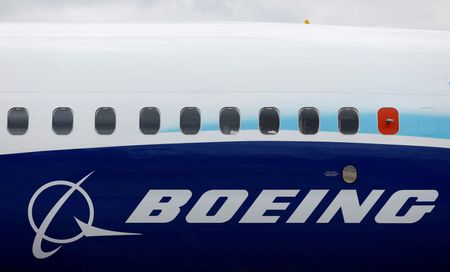By Abhijith Ganapavaram
(Reuters) – Aerospace giant Raytheon Technologies Corp can support a monthly production rate in the mid-50s range for Airbus SE’s A320 aircraft this year, a target that appears slightly below the planemaker’s planned output hike.
Airbus’ current output rate stands at 45 A320neo-family jets and the company plans to exit the year at a fraction below 60 a month – a rare one-third hike seen in aerospace, Reuters reported last week, citing industry sources.
Speaking at a Barclays conference on Wednesday, Raytheon Chief Executive Officer Greg Hayes backed Airbus rival Boeing Co’s planned 737 MAX jet production hike.
“There’s an aspiration to get to 38 (737 MAXs) by the end of the year. We can certainly support that,” Hayes said.
Boeing aims to raise the production of its bestselling 737 MAX jetliner from about 31 jets a month.
Production targets of the planemakers are under the scanner by investors – albeit for different reasons. Boeing is in the midst of staging a recovery from successive crises caused by two fatal crashes and the pandemic.
Airbus, on the other hand, is looking to further consolidate its position as the biggest planemaker by deliveries, but has seen its production targets pushed back by suppliers, especially by engine makers, citing supply constraints.
It was not immediately available for a comment on Wednesday.
Supply chain is getting better “incrementally”, Raytheon CEO Hayes said, with supply of chips improving but shortfalls in castings, used in making and servicing engines, still persist.
On Pratt & Whitney’s GTF engine, Hayes said their reliability has not been up to expectations and that the company was working to fix problems, amid criticism from some airlines over their performance.
Raytheon-owned Pratt & Whitney’s engines power all Airbus A220 jets and about half of A320neo aircraft.
(Reporting by Abhijith Ganapavaram in Bengaluru; Editing by Sherry Jacob-Phillips and Shinjini Ganguli)

